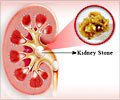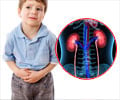Two studies say that patients on dialysis are very vulnerable during emergencies or disasters, but many are unprepared for such situations.

Naoka Murakami, MD, PhD (Mount Sinai Beth Israel) and her colleagues assessed the preparedness of adults receiving outpatient dialysis during the landfall of Hurricane Sandy in New York City in October 2012 at 5 regional centers where electricity had been deprived.
The researchers found that 26.3% of patients missed dialysis sessions and 66.1% received dialysis at non-regular dialysis unit(s). Seventeen percent of patients reported improvement in their dialysis-specific preparedness from before the storm. The improvement was significantly higher in the centers that distributed an "emergency information packet"-which includes information on a patient''s medications, dialysis schedule, comorbid conditions, and geographical/contact information for dialysis centers-after the storm.
"Hemodialysis patients are generally unprepared for natural disasters and there is a need to strengthen both patient and dialysis facility disease-awareness and preparedness to improve outcomes in natural disasters," said Dr. Murakami. "Our survey showed a positive effect of being prepared through the distribution of a ‘dialysis emergency packet,'' and we propose that this be more conveniently located on a mobile electronic application."
In another study Anuradha Wadhwa, MD (Loyola University Medical Center) and her colleagues assessed disaster preparedness in their hemodialysis patients and evaluated an approach to disseminate this information by having physicians, nurses, dieticians, and social workers review preparedness-relevant topics with patients.
While 60% of the patients thought they were prepared for an emergency, 80% of were actually not prepared. About 50% of them did not have a plan or know about a backup facility; 35% were unaware of an emergency diet plan. The researchers found that 95% of the patients were interested in learning about emergency preparedness, and 99% found the information provided during the project useful. Using similar criteria for preparedness, a follow up survey showed 80% of the patients were better prepared.
Advertisement
Studies:
"Impact of Hurricane Sandy on Hemodialysis (HD) Patients and Preparedness for Natural Disasters" (Abstract TH-PO979)
Advertisement
Disclosure information is available at www.asn-online.org/education/kidneyweek/2014/program-faculty.aspx.
ASN Kidney Week 2014, the largest nephrology meeting of its kind, will provide a forum for more than 13,000 professionals to discuss the latest findings in renal research and engage in educational sessions related to advances in the care of patients with kidney and related disorders. Kidney Week 2014 will take place November 11-16, 2014 in Philadelphia, PA.
The content of this article does not reflect the views or opinions of The American Society of Nephrology (ASN). Responsibility for the information and views expressed therein lies entirely with the author(s). ASN does not offer medical advice. All content in ASN publications is for informational purposes only, and is not intended to cover all possible uses, directions, precautions, drug interactions, or adverse effects. This content should not be used during a medical emergency or for the diagnosis or treatment of any medical condition. Please consult your doctor or other qualified health care provider if you have any questions about a medical condition, or before taking any drug, changing your diet or commencing or discontinuing any course of treatment. Do not ignore or delay obtaining professional medical advice because of information accessed through ASN. Call 911 or your doctor for all medical emergencies.
Founded in 1966, and with nearly 15,000 members, the American Society of Nephrology (ASN) leads the fight against kidney disease by educating health professionals, sharing new knowledge, advancing research, and advocating the highest quality care for patients.
Source-Newswise











